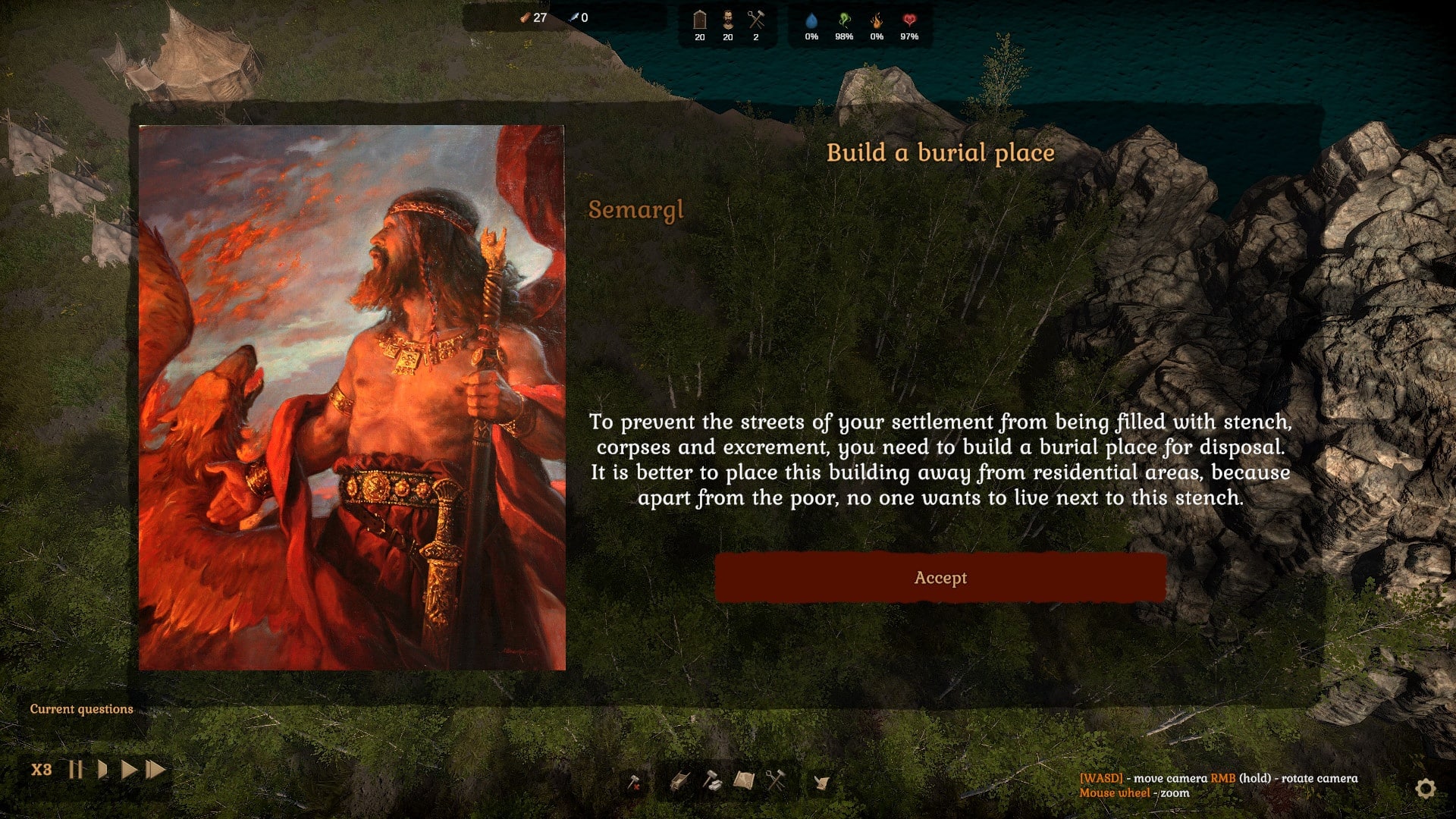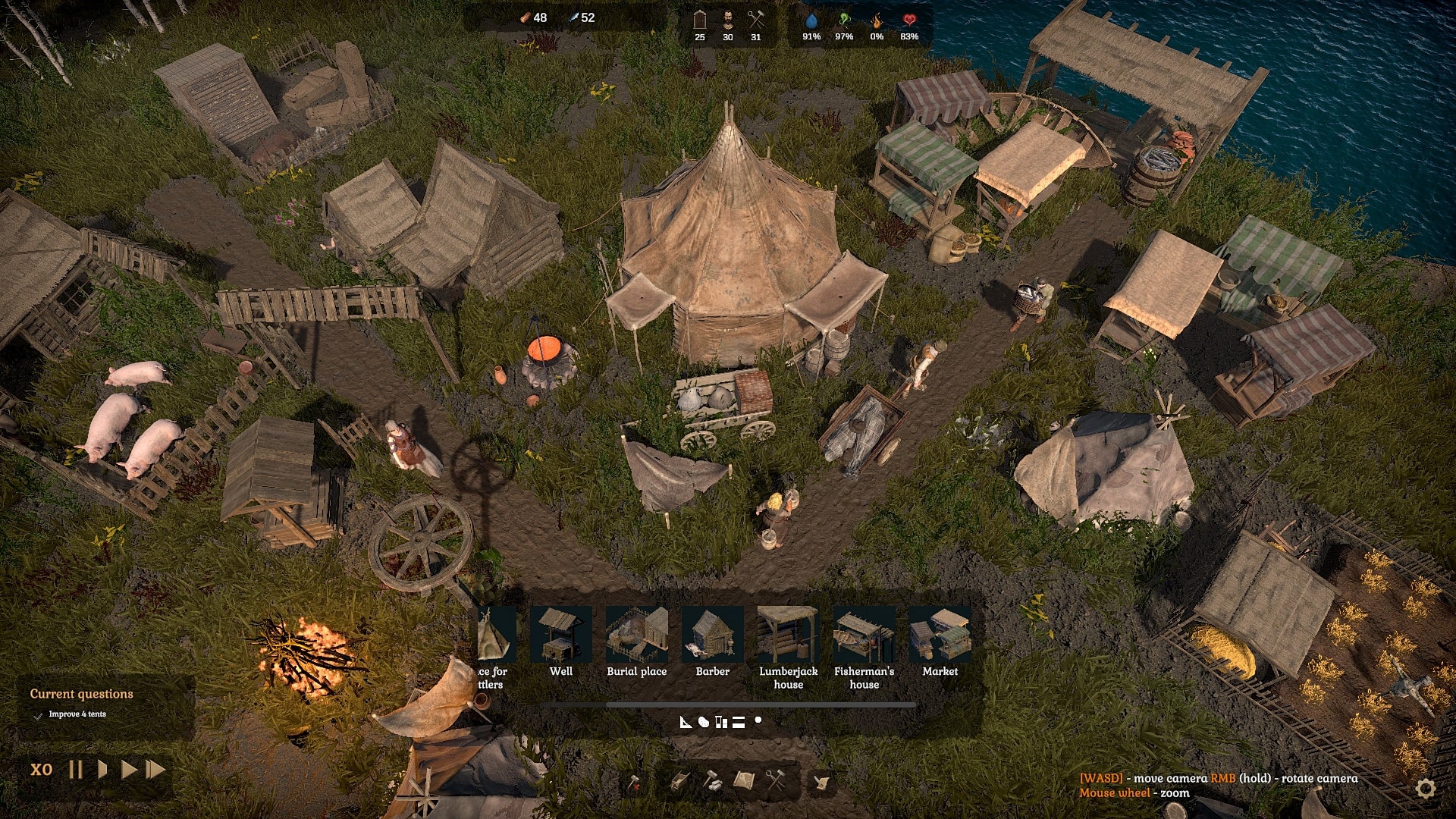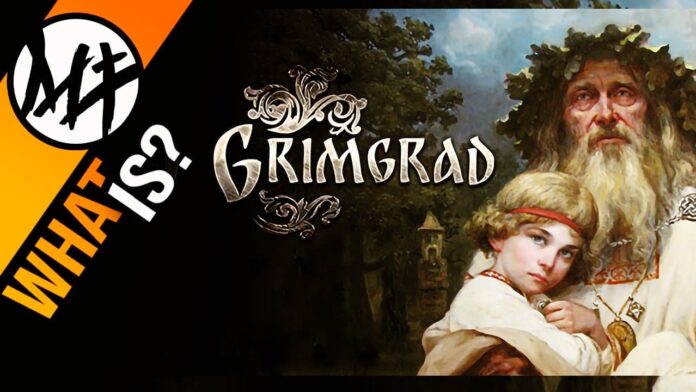What happens when you mix traditional city-building virtues with modern survival mechanics? The construction game Grimgrad dares to experiment. We tell you why it could be really good.
It is a beautiful Sunday in the year 2000 when I first discover the unique building game Pharaoh on my father”s oak desk. It is a Monday in August 2022 when, 22 years later, I decide to write down my love for Pharaoh in a column – because to this day, no other building game has been able to plug the pyramid-shaped hole in my heart.
It”s … well, exactly today, when I discover Grimgrad on Steam. First of all, the Slavic medieval setting reminds me with discomfort of PlayWay”s myth Slavic Builder – the big publisher, that swallows up building game dreams like a big black hole. But no, Grimgrad has nothing to do with the publishing giant. And the demo shows a completely different face: namely, it awakens surprising memories of Pharaoh.
Therefore let me tell you why the chic survival construction game set in the Middle Ages has landed on my wish list – but also leaves questions unanswered.
Table of Contents
What is Grimgrad about?
Grimgrad is based on a fairly classic framework: settlement building, population classes with different needs, resource management. Added to this are modern features such as survival elements, weather conditions and random events that require my intervention. The whole thing is then set in the Slavic Middle Ages, including mythology and supernatural phenomena.
But the first time I get palpitations is when I want to place my first well in the building menu. Logically, it has to be in the sphere of influence of the lake in order to be able to draw groundwater effectively. Water carriers are then employed at the well to guarantee a supply for the surrounding houses. No water, no inhabitants. This may cause some of you to shrug your shoulders in boredom, but it reminds me directly of Pharaoh! And this shall not be the last time.
Grimgrad also borrows another feature from Impressions Games: the gods! Similar to Caesar, Zeus and Pharaoh, the gods have to be satisfied by building temples, because they have enormous power over my city – for better or for worse. They can bring blessings or curses on my inhabitants and are thus an important factor that I must not neglect.

For whom is Grimgrad exciting?
The management of Grimgrad is far more than just the distribution of water, food and pious thoughts. Hygiene and health also play an important role. These are improved, for example, by barbers and corpse disposal facilities. I beg your pardon? Yes, that”s right. The dying of my inhabitants is not hushed up here (pun intended), but visualised by the transport of corpses through the city.
And that, too, directly awakens pleasant memories of Pharaoh – because every action here is represented by its own inhabitant: Water carriers, firemen, corpse transporters. When residents fall ill, they roam the streets like zombies, spreading the dangerous viruses on every street corner they cross.
They, in turn, are likely to be quite angular to some tastes. Grimgrad is a grid-based building game and that tends to divide people. Organic roads and paths like in Foundation would undoubtedly suit a rustic setting like the Slavic Middle Ages in the forest better. But of course such a grid also has playful advantages – like clearer spheres of influence, which play an important role in Grimgrad.
Incidentally, Grimgrad boasts on Steam that it wants to be particularly beginner-friendly for genre beginners – also through its story-heavy campaign, which serves as a tutorial. But of course there will also be a free mode to unfold.

What do we like so far? What remains open?
What do we like so far?
- Atmospheric setting: The Slavic Middle Ages have hardly ever been explored in a building game before. With Gord and the Myth Slavic Builder, there are two other city-building sims waiting in the wings, but Grimgrad can more than hold its own next to it, as it seems to capture the atmosphere atmospherically.
- Nice visuals: The rustic houses, the lighting and the beautiful statues of the deities give a very coherent picture so far.
- Mix of old and new features: The combination of modern build-up survival and old virtues from Impressions Games games could make Grimgrad unique in the genre.
What remains open?
- Minor bugs: In the last demo so far there were still some bugs like missing animations and balancing difficulties. For example, newly built houses lacked water at the beginning, even if they were built right next to a well. This is because a water carrier has to move in first – which he does not do if there is a lack of water. According to the developers, such errors are being diligently corrected.
- The campaign: Not everyone is a fan of building campaigns, but nevertheless the story should be well told and convey the most important mechanics of the game in an exciting and understandable way to really draw you into the game.
- Feasibility: Can this game really achieve the quality it aims for? Grimgrad is being developed by the makers of the survival MMO Wild Terra 2, which was supposed to inherit Ultima Online, but received only mixed reviews due to teething problems. With the single-player game Grimgrad, the developers are now baking smaller and hopefully more feasible rolls.
We will find out more in the course of 2022, when Grimgrad is to be released on Steam and possibly there will also be a free demo to try out beforehand – the building game has already released several of them.
Editor”s verdict
I am full of longing. Full of longing for a time when my head was just above the desk top and my tiny hands clutched the big mouse to build temples, fairgrounds and pyramids in Pharaoh. No game could ever give me that feeling again, which is why I still play Pharaoh to this day – only now with appropriately large hands.
That”s why I”m quick to get my hopes up about games that could revive the Impressions Games spirit. And Grimgrad has won me over, at least visually and in terms of its ideas. But whether the implementation makes me just as happy is in the hands of the gods alone.


